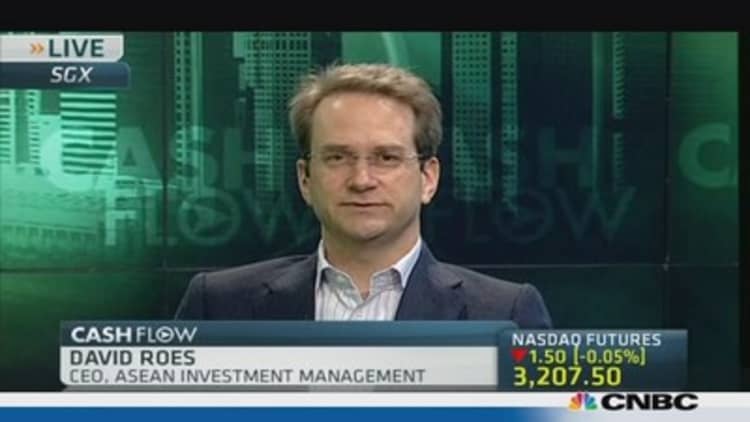After the long, grinding downturn in Vietnam's property market, some investors say now is the time to jump back in.
Vietnam's listed real-estate companies have bottomed out, said David Roes, CEO of Asean Investment Management, which has about 90 percent of its $10 million under management invested in the country.
After a four-year bear market, "you've still got relative valuations in real estate that are incomparable to any other market," he said. Listed real-estate companies often have 14 to 15 percent dividend yields and trade at 2.5 to 3 times earnings, sometimes with zero debt, he said.
(Read more: In Case You Missed This: Vietnam Stocks Up 17%)
In 2007, the country's property market hit a wall after peaking with a bit of a "flipping frenzy," which was crushed in the following years by double-digit inflation, lending rates above 12 percent and multiple devaluations of Vietnam's local currency, the dong.

Credit for developers dried up and the dong devaluation boosted the cost of imported materials and labor, leading to many abandoned projects.
But now Vietnam's property laws are changing and the prices of undeveloped land purchased from farmers will no longer be set by the government, meaning the cost will rise and companies with existing land banks can realize value, he said.
"The downturn has hit rock bottom," agreed Jason Ng, a director at VinaCapital. Ng noted the government is planning to introduce new regulations allowing foreigners to purchase both apartments and landed properties and to permit them to rent out those properties.
He also noted both developers and buyers of social housing will be offered preferential loan rates of around 6 percent.
(Read more: Frontier markets: Top opportunity or too risky?)
"We hope that will spark new interest in the property market," Ng said. VinaCapital's VinaLand closed-end fund, listed on the London Stock Exchange's AIM section, has around $466.5 million under management. The fund, which trades in U.S. dollars, peaked at around $1.70 in 2007; it is now trading around $0.44.
But while Ng sees value in the end-buyers, Roes is distinctly "wholesale" on his property picks, avoiding the "retail" finished products, which he still sees as too expensive.
He's avoiding the high end, especially high-end retail developments, but likes urban developments in tier-two and tier-three cities, where there's little competition. He also looks at industrial estates, commercial properties and some mall developments.
Among his top stock picks, Roes likes Apec Investment JSC, noting it's trading at just 2.5 times its 2014 earnings, with a 14 percent dividend yield. The stock has a $5.5 million market capitalization, compared with a net asset value (NAV) in excess of $100 million, he notes.
(Read more: Emerging markets: The comeback kid of 2014?)
The company just sold 5 hectares of industrial park land near a new Samsung factory expansion outside Hanoi for a 100 percent markup, with a profit equal to 25 percent of its market capitalization, Roes said.
Among other property plays, Roes also tips Thang Long Investment Group, which trades around 1.5 times its 2015 earnings, with a $3.0 million market cap compared with an over $100 million NAV, and Van Phat Hung, which has a $6.4 million market cap compared with its over $120 million NAV.
—By CNBC.Com's Leslie Shaffer; Follow her on Twitter @LeslieShaffer1

